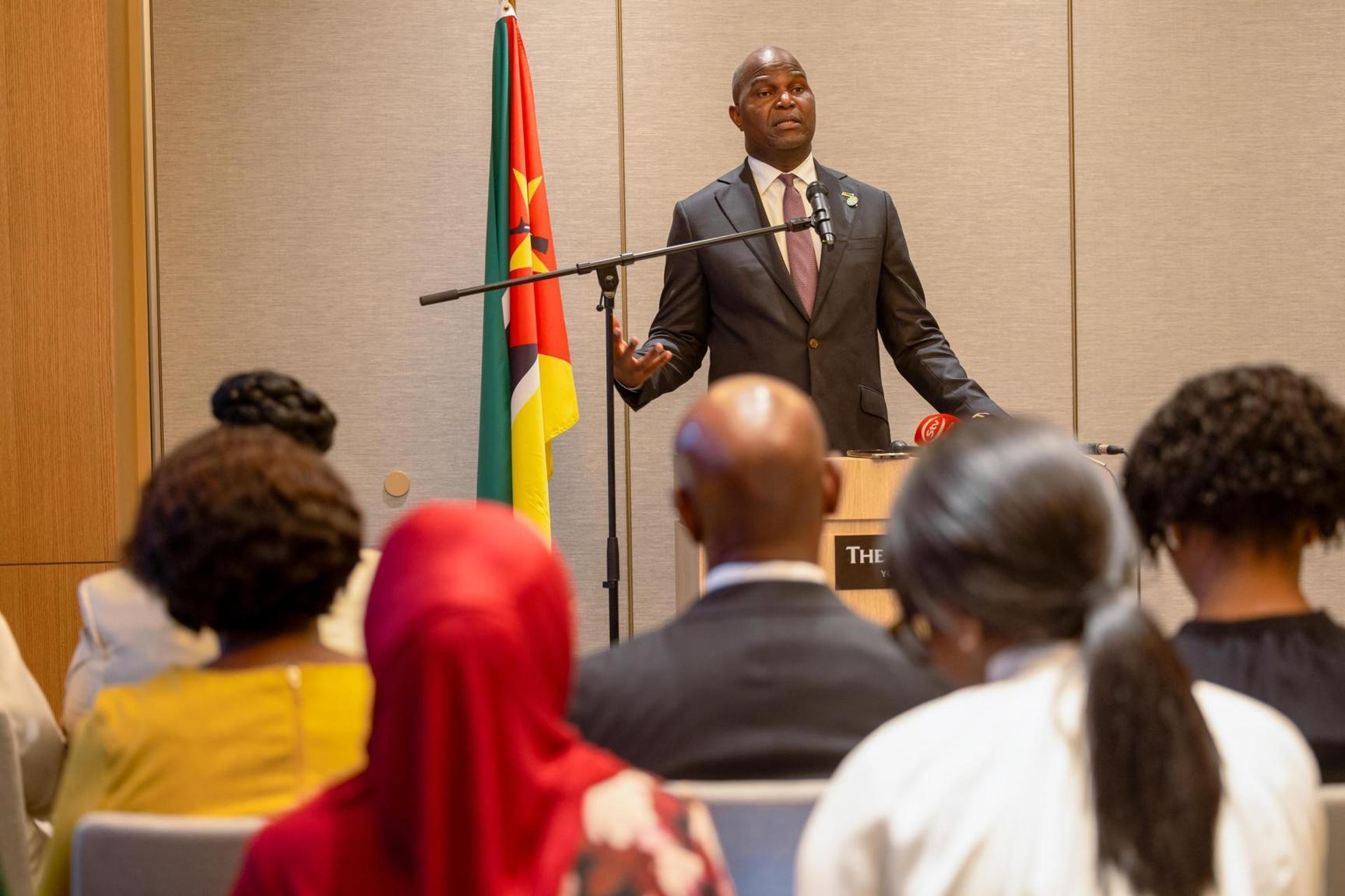Africa-Press – Mozambique. President Daniel Francisco Chapo concluded his three-day working visit to Japan on Friday with an “extremely positive” assessment of his participation in the 9th Tokyo International Conference for African Development (TICAD 9).
The president’s mission strengthened bilateral relations, consolidated economic partnerships and established a commitment to move from words to action, advancing strategic projects that will contribute to Mozambique’s sustainable development.
Reviewing his visit, the head of state emphasized that it further strengthened the friendship and cooperation between Mozambique and Japan, a relationship that has lasted over 40 years. Specifically, President Chapo emphasized the importance of the Nacala Corridor, considered one of the largest development corridors in the SADC region, and highlighted Japan’s interest in investing in its expansion.
“It is in this context that, during the summit, beginning with the opening speech, we heard the Prime Minister of Japan [Shigeru Ishiba] refer to Mozambique’s potential and, more specifically, the Nacala corridor […]. This aspect caught our attention. It’s true that we already knew, we’ve been working with Japan for years, and we believe it’s time to take action, and we will work towards this goal,” the president observed.
The president highlighted the work of the Japan International Cooperation Agency (JICA) on specific projects to rehabilitate and expand the Port of Nacala, as well as social investments in education, the provision of school supplies and healthcare support.
He also mentioned projects of significant Japanese interest, such as the construction of the Mpanda Nkuwa plant with Sumitomo’s participation, Mitsui’s involvement in the Nacala Logistics Corridor, and Mitsui’s 20 percent stake in the Area 1 liquefied natural gas (LNG) project in the Rovuma Basin in Cabo Delgado, led by TotalEnergies.
“There are several other private sector projects in Mozambique in which Japanese companies have a stake, and we believe it is time to work to bring these projects to fruition so we can develop our country,” Chapo noted.
The president explained the integrated development of the Nacala Corridor, encompassing agriculture, accelerated development zones, industry, tourism, logistics, roads, railways, port expansion and industrial free zones.
Nacala Corridor currently covers the provinces of Nampula, Zambézia, Niassa, Cabo Delgado, and Tete, and there are discussions in Japan about the need to extend the corridor regionally to Malawi, Zambia, and even the southern Congo, the president said.
Also during the review, the head of state highlighted bilateral meetings with Japanese authorities, including the prime minister, to present Mozambique’s vision as a regional electricity hub, leveraging hydroelectric, gas, solar, wind and coal power.
“Therefore, we have this potential; we have the demand from countries in the region that are facing electricity challenges, and the solution lies in Mozambique, and what we really need is investment. And Japan, through the Prime Minister, has shown its willingness to participate financially in this vision of the Government of the Republic of Mozambique, and we believe this was very important,” President Chapo said.
President Chapo concluded by emphasizing the commitment to transform the discussed projects into concrete actions.
“We have already prepared a preliminary assessment, written down, and reached this conclusion. We will have a framework for follow-up and an action plan, so that in the coming days we can meet in Maputo with JICA, the Japanese Embassy itself, and all the partners involved in this country, so that we can take the next steps: moving from this phase we discussed, from words to action and developing our country.”
For More News And Analysis About Mozambique Follow Africa-Press






